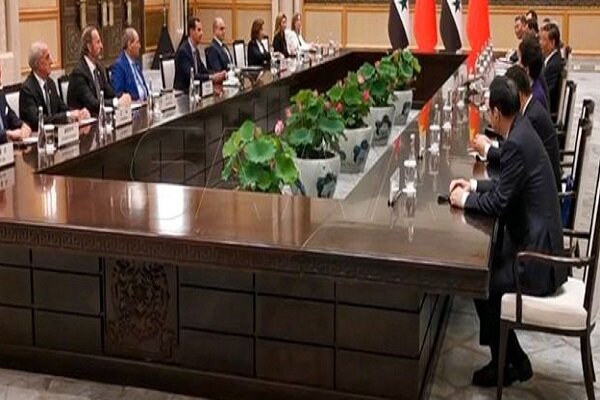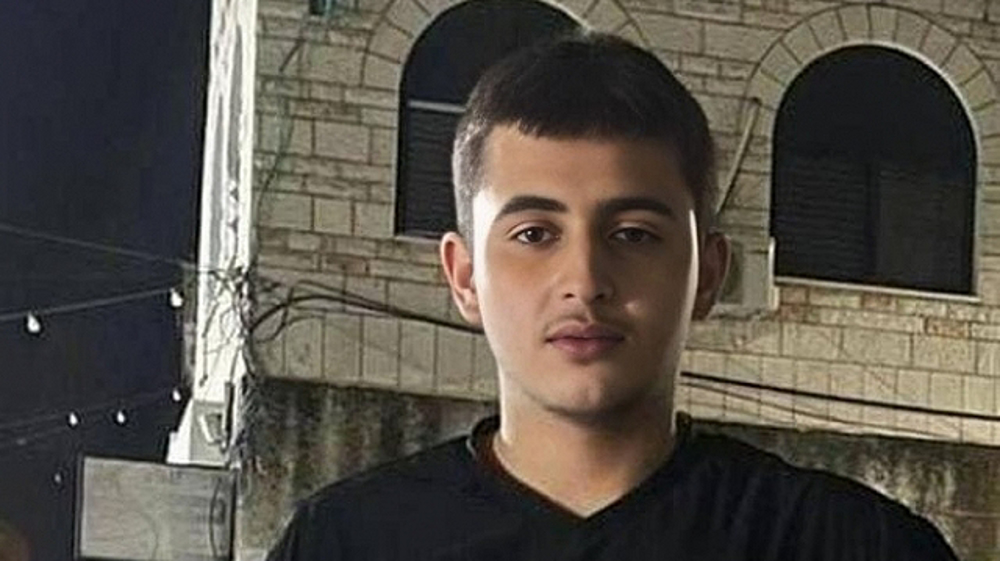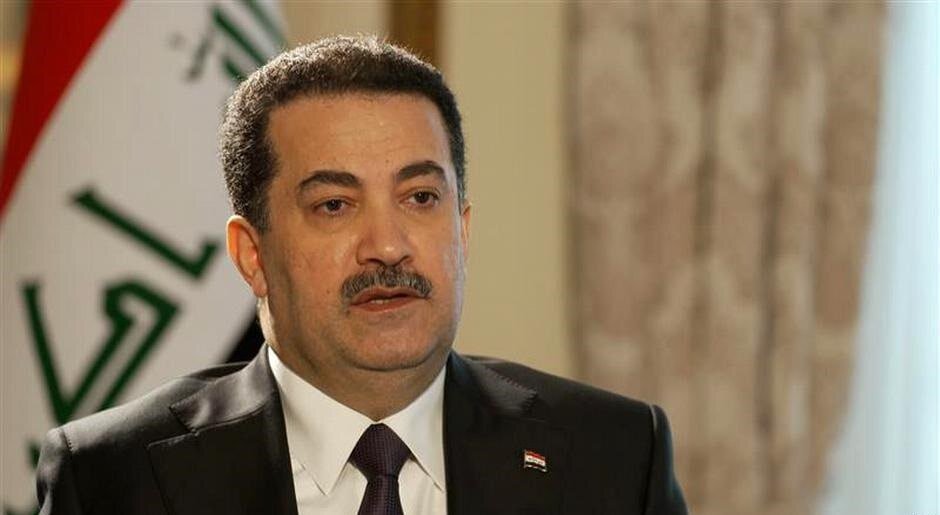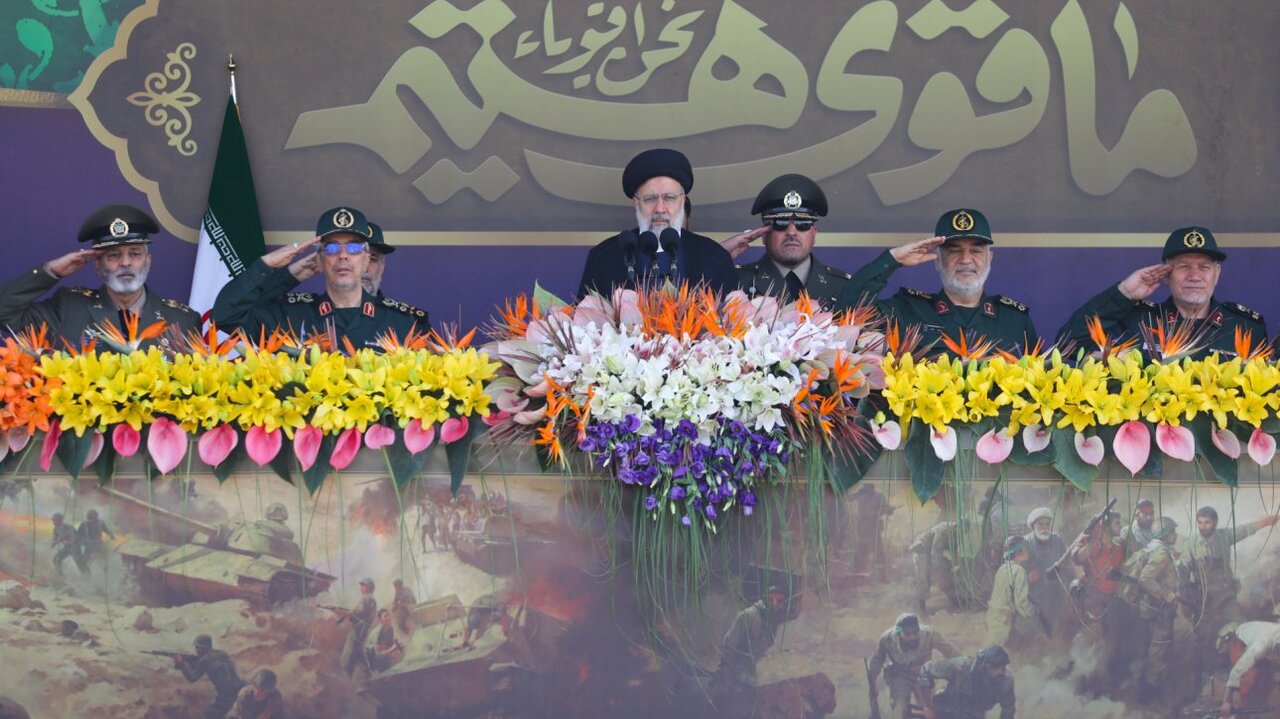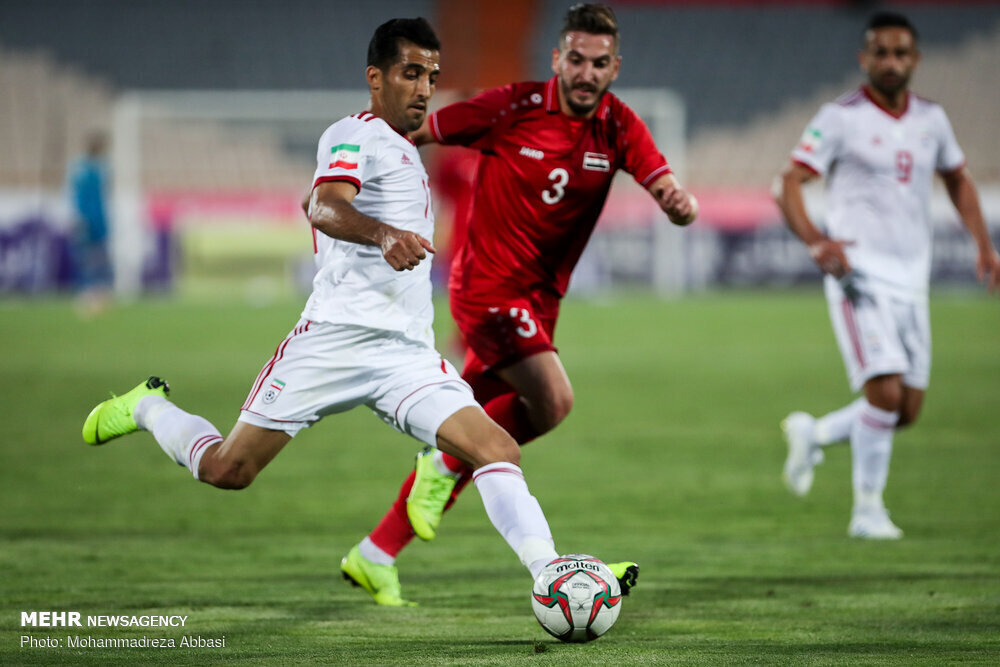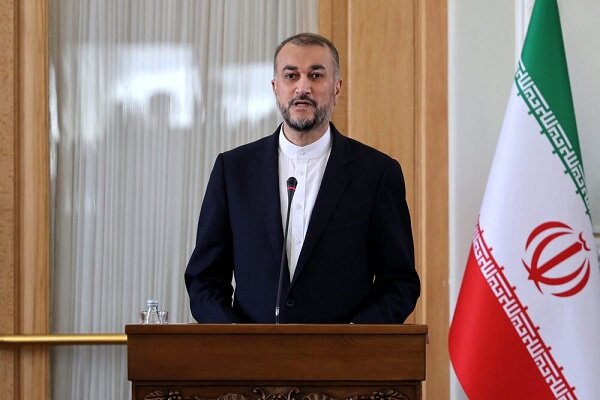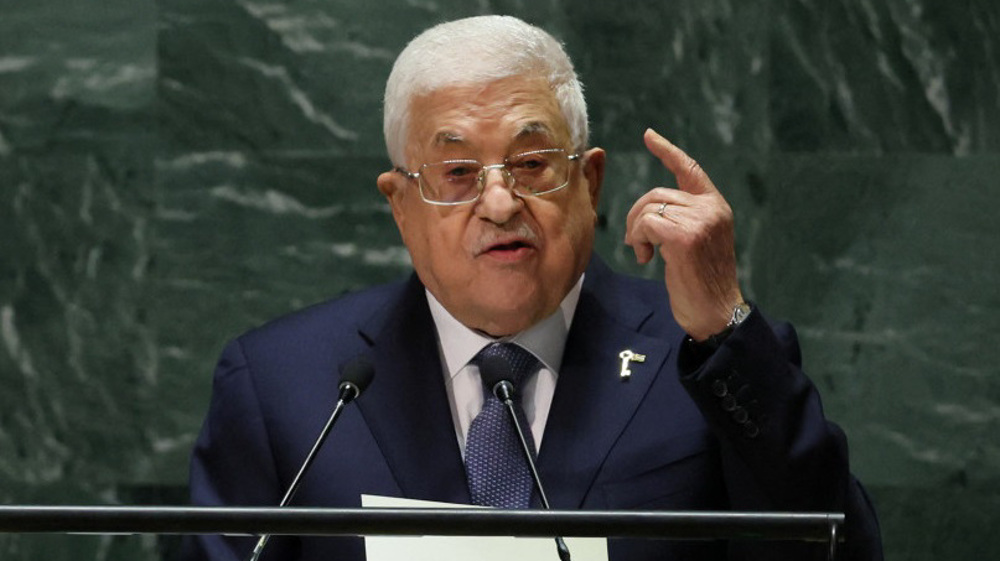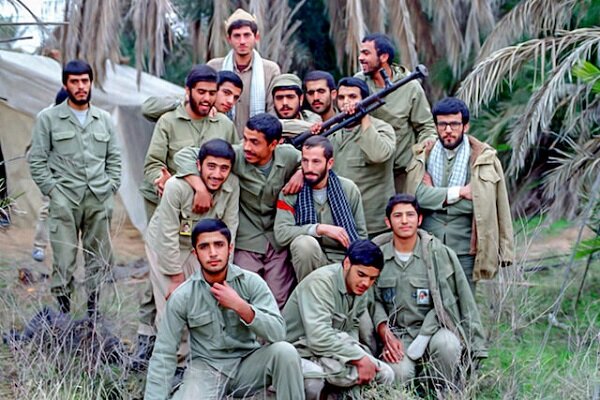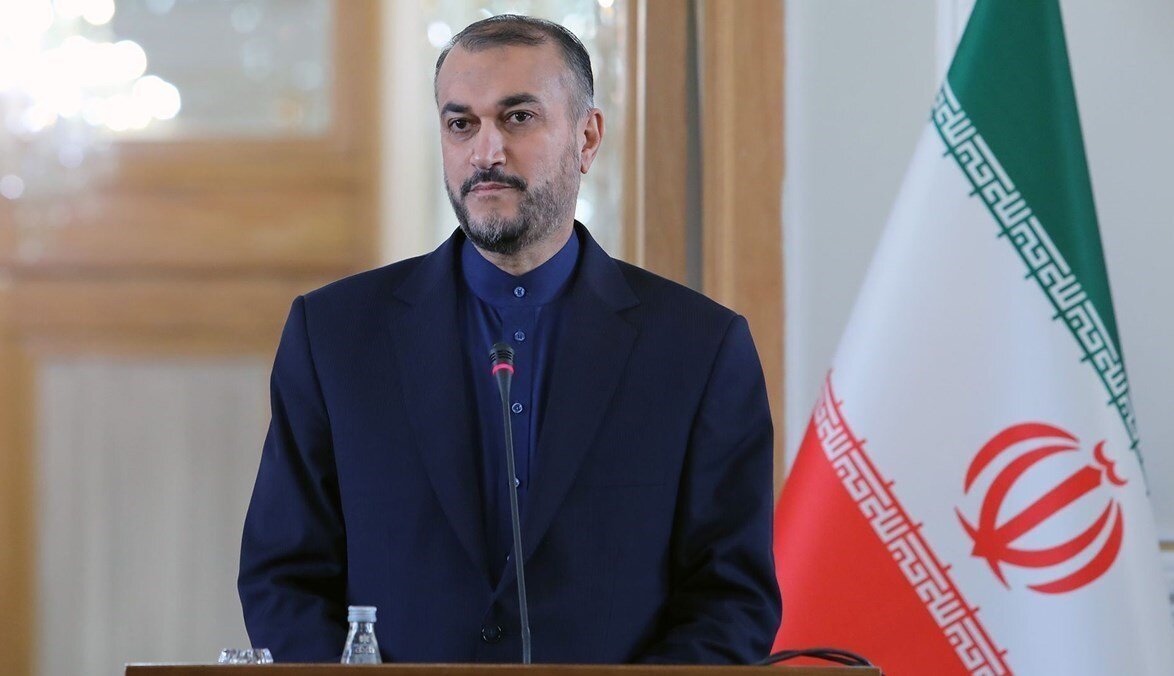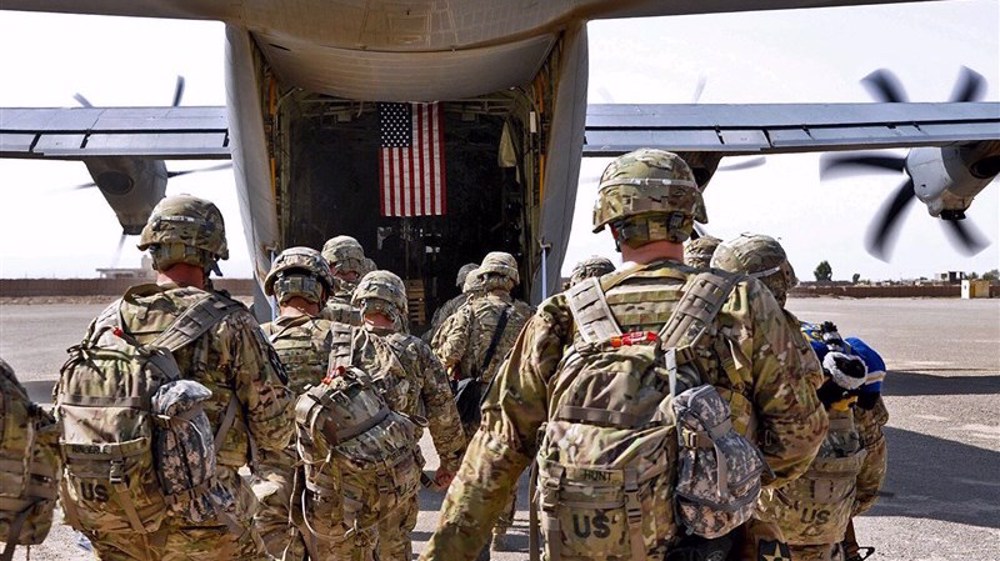Amir-Abdollahian who accompanied Iranian President Ebrahim Raeisi to New York to attend the United Nations General Assembly meeting, met with a number of his counterparts and the Secretary-General of the Persian Gulf Cooperation Council.

Iran, Singapore FMs meet
Amir-Abdollahian met with his counterpart from Singapore on the margins of the annual session of the United Nations General Assembly on Wednesday.
In the meeting, the two sides underscored their interest in the expansion of trade and economic ties.
The top Iranian diplomat touched upon the massive economic potential as well as trade ports in Iran along with Singapore’s important trade and economic status, stressing the significance of tapping into the existing potential.

Iran FM thanks Qatar for mediating prisoner swap with US
Iranian foreign minister also met and held talks with Qatar’s Prime Minister and Foreign Minister Sheikh Mohammad bin Abdul Rahman Al Thani.
The two top diplomats exchanged views about bilateral issues as well as some regional and international issues of mutual interest.
Amir-Abdollahian praised the Qatari government’s constructive role in advancing bilateral issues including the recent prisoner exchange between Iran and the US.
The Iranian foreign minister expressed pleasure with the growing trend of relations between Tehran and Doha in various fields. Stressing the need to strengthen this aspect, Amir-Abdollahian said Iran is ready to strengthen cooperation in regional and international fields.
Sheikh Mohammad bin Abdul Rahman Al Thani, for his part, extended greetings from the Qatari Emir to the leaders of Iran, voicing his country’s readiness to bolster ties in various bilateral, regional and international areas.
He further said Qatar is prepared to continue its constructive and helpful role in issues of mutual interest and underlined the necessity of taking advantage of the positive climate in the region to further efforts to that end.
He also voiced his country’s readiness to continue negotiations with Iran in the near future in Tehran or Doha, which was welcomed by Amir-Abdollahian.

Iran, Djibouti decide to resume diplomatic relations
Amir-Abdollahian met with his Djiboutian counterpart Mahamoud Ali Youssouf on the sidelines of the UN General Assembly summit in New York.
In the meeting that was held in a friendly atmosphere, Amir-Abdollahian said, “We have always witnessed very good developments in relations between Iran and Djibouti over many years and there are different areas in which we can work.”
He added that Iran welcomes the expansion of ties with Muslim and brotherly countries and is interested in putting back ties with Djibouti on the right track.
Amir-Abdollahian went on to stress that we see Djibouti as a friendly and brotherly nation, adding that Iran considers relations with that important Muslim country in the Horn of Africa highly important and warmly shakes hands with its Djiboutian brothers.
“We can establish robust ties and expand our cooperation in all areas,” said the Iranian foreign minister.
Pointing to the capabilities of the Islamic Republic of Iran in scientific and technological fields, the Iranian foreign minister said Iran is ready to share these capabilities with Djibouti.
He further extended greetings from the Iranian president to high-ranking officials of Djibouti and invited Mahamoud Ali Youssouf to visit Iran as soon as possible.
The Djiboutian foreign minister also said he was pleased to meet with Amir-Abdollahian, saying Iran and Djibouti have always had good and constructive relations in the past and that his country is fully prepared to strengthen these constructive and good ties in light of the good possibilities of both sides.
He described solidarity among Muslim nations as important and said it is necessary for Islamic countries to be together in critical situations.
Mahamoud Ali Youssouf stressed that the Republic of Djibouti welcomes the establishment of inclusive relations with Iran.
He also said the two sides have always worked together and this cooperation is continuing and “we are ready to strengthen the relations.”
Amir-Abdollahian and the Djiboutian foreign minister also discussed some regional issues of mutual interest and others that are important to Islamic countries including the Palestinian issue. Both foreign ministers reaffirmed their support for the Palestinian nation and the Palestinian cause.
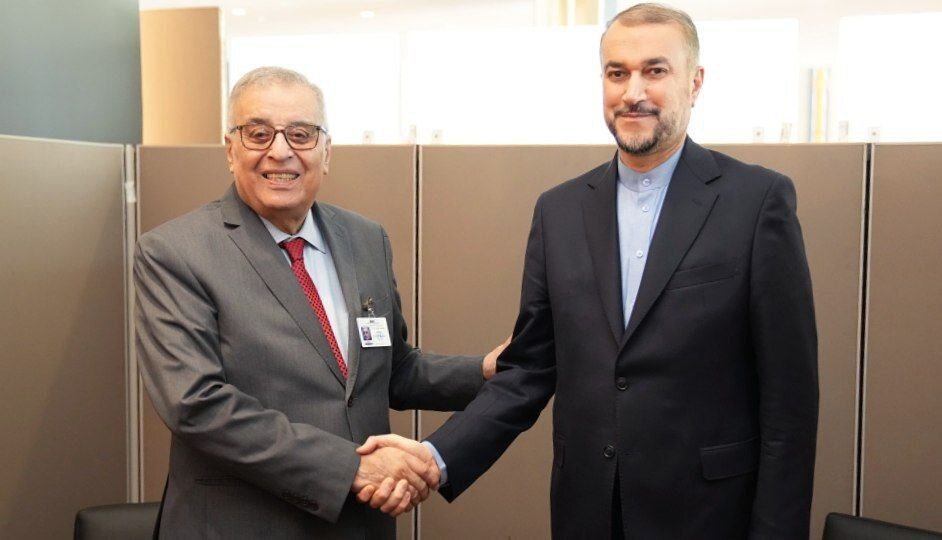
Iranian FM reiterates Tehran’s continued support for the Resistance in Lebanon
Hossein Amir-Abdollahian also met with his Lebanese counterpart Abdullah Buhabib on the sidelines of the UN General Assembly session in New York.
In the meeting, the two top diplomats discussed issues of mutual interest and the latest state of the political process in Lebanon.
Amir-Abdollahian said Iran will not hesitate to help with this political process based on any decision that the Lebanese adopt.
The Iranian foreign minister stressed the importance of the Palestinian issue and reaffirmed Tehran’s continued support for the Resistance in Lebanon and Palestine in the face of threats by the Zionist regime.
He further underlined the need for Muslim countries to continue supporting the Palestinian people.
Buhabib, for his part, referred to the latest developments in Lebanon and appreciated the Islamic Republic of Iran’s constructive support of his country.

Tehran welcomes further enhancement of Iran-Swiss cooperation
Iran’s foreign minister sat down with his Swiss counterpart on the fringes of the annual session of the United Nations General Assembly on Wednesday.
In the meeting, issues of mutual interests along with key regional and international issues were discussed.
Amir-Abdollahian underlined that Iran welcomes further enhancement of cooperation between the two countries.

Tehran has no restrictions in expanding ties with Manila
Iranian Foreign Minister and the Secretary of Foreign Affairs of the Philippines, Enrique Manalo discussed the latest developments in bilateral ties.
Expressing his satisfaction with this meeting, Iran’s top diplomat said that the ancient and friendly relations’ history between the two countries is a very good investment for expanding future relations.
Amir-Abdollahian said that Tehran is ready to expand its commercial ties with Manila and cooperate in scientific and technological fields and other fields of interest.
Referring to the global movement towards multilateralism, he termed this process as an opportunity for Iran and the Philippines, adding that both countries have common views and good cooperation in international organizations.
Touching on the good relations and cooperation between the two countries, the Secretary of Foreign Affairs of the Philippines for his part said, “We have various fields for cooperation and can provide the basis for cooperation between the two countries in new fields of interest.”
Manalo emphasized the importance of strengthening cultural exchanges between the two countries.
He added that we have a common point of view regarding respect for international law and support for multilateralism in the international sphere.
He noted that Iran and the Philippines’s ties have always been good both at the bilateral and international levels, including in the United Nations, voicing readiness to continue bilateral cooperation.

FM invites PGCC secretary-general to visit Iran
Amir-Abdollahian also met with the Secretary-General of the Persian Gulf Cooperation Council, Jassem Mohamed Albudaiwi on the sidelines of the UN General Assembly summit in New York.
The minister stressed the importance of expanding ties between Iran and the southern countries of the Persian Gulf.
He then referred to his recent trip to the Persian Gulf countries and Iran’s initiative, saying, “We proposed the formation of a forum for dialogue and cooperation.”
Amir-Abdollahian added that today, regional leaders show more interest in cooperation than talks, [and] therefore Iran’s initiative was welcomed.
He underlined that any differences in the region must be resolved through constructive diplomatic talks.
Amir-Abdollahian further invited the PGCC secretary general to visit Iran, which was welcomed by Albudaiwi.
Albudaiwi also welcomed the growing trend of ties between Iran and the member states of the Persian Gulf Cooperation Council, saying the Persian Gulf is a strategic region and fortunately, in this new environment, there is room for greater cooperation between regional countries.
The PGCC chief said tension in the region is harmful to all sides and that the body welcomes Iran’s efforts to boost regional cooperation.
He added that it is necessary to step up efforts to increase dialogue and present initiatives for the purpose of strengthening cooperation.
This item is being updated…
MNA/
